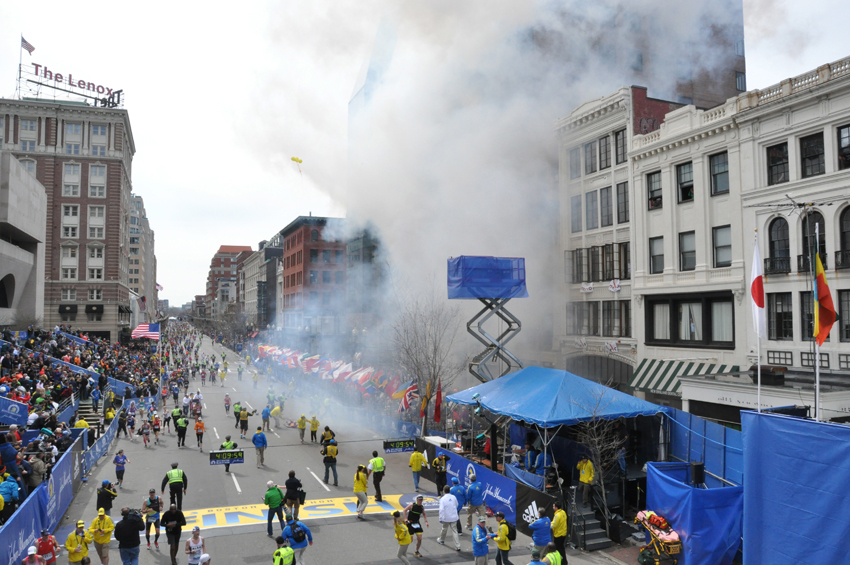What It Was Like at the Boston Marathon Medical Tent

The finish line. Photo by Regina Mogilevskaya
We’ve all seen the shocking pictures and touching news stories about the events immediately following the Boston Marathon explosions, but it’s hard to imagine what it would be like to be part of the medical team on the scene that day. Dr. Sashrut Jangi, a physician at Beth Israel Deaconess Medical Center, was working the finish line medical tent and published his experiences in a first-person narrative entitled “Under the Medical Tent at the Boston Marathon” in the New England Journal of Medicine.
Jangi’s account draws a sharp contrast between the morning’s duties—the run-of-the-mill dehydration and cramping care typical of marathons—and the horror and mayhem of the post-explosion care, detailing vividly the fear of the patients already in the tent when the bombs went off, the need to decide whether to stay with them or help those at the finish line, and the realization that he and his fellow doctors could die in the line of service.
And though many of the doctors and nurses on the scene (thankfully) had trauma training, Jangi also says many felt helpless in the face of such horrific injuries. With all the attention given to how well the medical team performed under pressure it’s easy to forget how horrible the day was for them, but Jangi writes about the feeling of not quite knowing what to do:
“… many of us watched these passing victims in a kind of idle horror, with no idea how to help. When I asked Andersen [the medical coordinator] what I could do, he glanced at me sadly, shook his head, and threw up his hands.”
Jangi goes on to recount the mental toll the day took on those tasked with ending the devastation, and the need, as expressed by family physician Pierre Rouzier, to be “mechanical rather than compassionate” just to get through the day. He says:
“Nothing had prepared me for the raw physicality of such unnatural violence. During residency I had seen misery, but until that moment I hadn’t understood how deeply a human being could suffer; I’d always been shielded from the severe anguish that is all too common in many parts of the world.”
Through the trauma, the panic, and the sadness, however, Jangi ends his piece on a hopeful note, one that remembers the beauty of Marathon Monday:
“I focused on the pre-marathon hours when I coasted down Boylston Street on my bicycle, sharing the road with skateboarders, joggers, and spectators who’d woken up early to celebrate the beauty of the spring morning. I try to hold onto this sensation of freedom, hoping that it may, in some small way, displace the horror of the events that followed. I continue to believe that without such resilience, we would never have the courage to hold another marathon, or return to work, or care for our next patient.”


